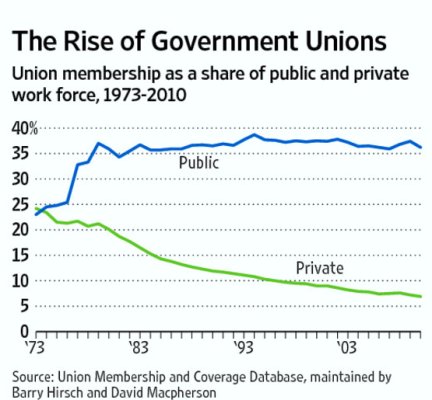M Paquette
Moderator Emeritus
Sorry, maybe I lost something in translation, but that's how I read your comments.
-ERD50
Probably lost in translation. On the Wisconsin fuss, the public employees union seems to have gotten everything they asked for in past negotiations with little pushback from the management. Since the management has done so poorly at negotiation, it looks like part of the executive and legislative folks decided to handicap the union side to even the playing field.
They were able to play on the overall politicization of anti-union sentiment to accomplish this. The outcome is being seen as a huge win for the anti-union movement, and will shortly be extended to attempts to curb the unions in all workplaces, with particular focus on cutting of their source of funds, the union dues paid by workers.
Playing off of the "I got mine, the hell with you" attitude now common in America, the passage of a national 'Right to Work' bill ending closed 'union-only' workplaces (agency shops) will result in most workers not joining, or dropping out of unions. This will effectively end the negotiating power of unions in the workplace, and more importantly, will greatly reduce the political power of unions in the election process and influence through political support.
It remains to be seen if anti-union sentiment can be whipped up and maintained long enough to end the influence of unions in America.



